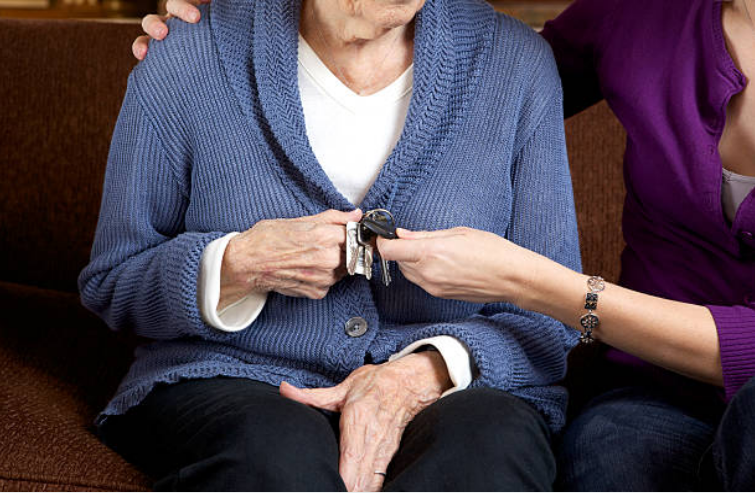There is no easy answer to this question, especially because driving is so closely tied with being independent. Every person is different and changes usually come slowly.
Yet, there is no doubt that as we age, we experience physical and mental changes that can make it increasingly more dangerous to drive.
Here are some signs that it may no longer be safe for your parent to be behind the wheel:
- Drifting across lanes
- Hitting the wrong pedal
- Using two feet on the brakes
- Driving too slow or too fast
- Trouble seeing at night
- Stopping at intersections where there is no stop sign or traffic signal
- Changes in the ability to park
- Forgetting basics like seatbelts, turn signals or headlights
- Slower reaction time
- New dents and dings on the car
- Neighbors, grandkids or others are expressing concerns
So you’re seeing some of these signs, now what?
Because of the sensitive and emotionally charged nature of this topic, it’s important to tread carefully. Before you talk to your loved one, consider these ideas to make the changes easier to swallow:
Talk to others. Discuss the question with your siblings or others who know your parent well. If needed, talk to a doctor or law enforcement officer for advice.
Research options. Look into the costs and practicalities of using taxis, ride shares or public transportation. Is there a friend who can take mom to her monthly book club, a neighbor who can drive dad to his doctor’s appointments, or a volunteer who can drive them to church?
Look at it as a process. If possible, begin making changes by putting some restrictions on your loved one. For example, you could ask them to discontinue driving at night, in bad weather or on the expressway. By curtailing the most dangerous times and places to drive, you can help keep your loved one safer.
Focus on change, not loss. Talk about how this will not mean a loss of freedom, just an adjustment. Discuss which alternative modes of transportation will be best and may even increase their mobility. If they have a smartphone, set up an account with Uber or Lyft, and show them how convenient and easy it is to use these services.
Home
Care Angels provides assistance with daily activities, such as dressing, eating
and personal care, from home service aides. Please call 847.824.5221 to
speak with one of our Client Care Coordinators if you would like more information
on in-home care.

